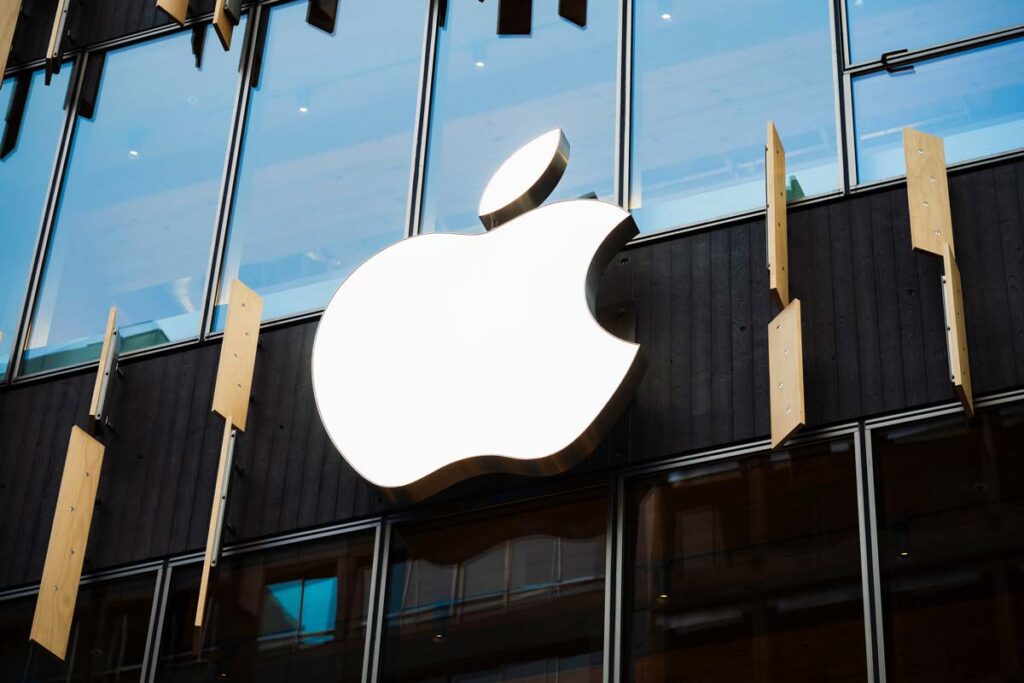In this world of ever changing technology, Apple, Inc is there every year to unveil their most recent update on their staple product — the iPhone. However, on March 21st the Department of Justice filed a lawsuit against the company on the accusations that they hold a monopoly, or total control, over the cellphone industry. Since his inauguration, the Biden administration has taken efforts to go after many Big Tech companies, such as Google and Meta. Apple may just be another notch in their post or the Department Of Justice (DOJ) may have a case to impose regulations on the company that would force them to give some of the hold on the market that they currently possess.
Apple’s software is purposely designed to make interaction between their products and other tech companies’ devices difficult. The most commonly used example is the fact that iMessages, texts sent between Apple products, appear blue and offer more — and better quality — features than texts sent between Apple and other phones, which appear green. As an Junior and Aderiod user Giang finds herself as the “green bubbles in chats and usually the reason why no one can leave group chats.” “I get a lot of hate” she ads, “And you know, I get that. But also, it’s Apple’s fault for refusing to use RCS for text messages and downgrading texts with Android to SMS or MMS” Apple responded to the DOJ claims and similar sentiments by stating that these limiting features are not meant to be a sales tactic, but a safety feature. They claim that by keeping these limitations on outside devices they can ensure the safety of the information they store within their databases.
Junior Laura Wagner and her father have “always had an Android” and believes that “Apple products are mostly for appearance and status symbol, and less so for sheer technology.” The DOJ is arguing that features like those create a stigma around not having an Apple phone and make it more difficult for those who do buy other brands, since Apple has a hold on 65% of the smartphone market. Wagner recognizes that “Any company’s goal is to be the top on the market, and Apple is great at that” an notes that “Samsung thrives in regions outside of smartphones, laptops, tablets, and other portable consumer electronics, in things like household appliances or smaller pieces of technology. Apple is excellent in marketing and they thrive on that.”
Another part of the claim goes along with a battle that Apple has been fighting for years. As Apple holds the reins on the cellphone industry, they also control what apps are offered in their app store and allowed on their devices. Their popularity with consumers allows them to ask for monetary gain from the apps that they offer and ultimately phase out the ones that will not comply with what they are asking.
The DOJ claims that this lawsuit is to allow other companies a chance in this market and loosen up the hold that Apple has over the tech industry. Giang traces Apple success to their “exclusivity” and while that “probably does help prevent sales to competitors” she adds she’s “not sure if that’s really their sole intent. I feel like the way they run their brand is also just really unique to them, and it’s sort of what’s made them stand out respectively.” Despite this she claims that iPhones are “really not worth the price, especially looking at the prices for Android phones that offer practically the same” though she supports other products like tablets and iMacs.
Attorney General Merrick Garland argues in favor of this popular sentiment toward Apple: that “Consumers should not have to pay higher prices because companies violate the antitrust laws,” contributing to the claim that Apple is able to charge more for their devices because of the tactics they’ve used to make it harder on non-Apple users and make their products an almost required part of day-to-day life. In a statement issued by Apple, they emphasized their intent to fight the lawsuit and stated, “This lawsuit threatens who we are and the principles that set Apple products apart in fiercely competitive markets. If successful, it would hinder our ability to create the kind of technology people expect from Apple — where hardware, software, and services intersect. It would also set a dangerous precedent, empowering government to take a heavy hand in designing people’s technology.”
While the quality of Apple’s products is not in question, as shown by non-Apple users to find some pros to the companies outputs, overall, Apple’s saturation of the market and mass popularity has started the national– though not the national– growth of industries like Android and Samsung. Biden’s administration has shown an increase is anti-trust enforcement especially against big tech, a spirit reminiscent to the trustbuster himself (Roosevelt). The Apple shakedown has yet to fully unfold, but it is likely to set the stage for Apple’s future at the top of the market, at least in terms of the market practices and saturation.







